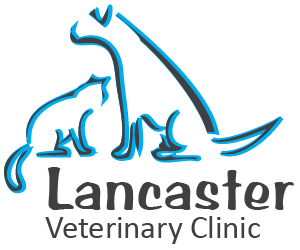Educational Articles
-
A luxating patella is a kneecap that moves out of its normal location, causing an affected dog to skip or hop on three legs. Many toy or small breed dogs, including the Maltese, Chihuahua, French Poodle, and Bichon Frise, have a genetic predisposition for a luxating patella. Surgery should be performed to prevent the development of arthritis or another knee injury.
-
Lymphocytic plasmacytic gastroenteritis is a form of inflammatory bowel disease. While the exact cause is not known, it is possible that the intestinal bacteria themselves may be involved in stimulating the immune response. Treatment may include nutrition management, immunosuppressive medications, and dietary supplementation of cobalamin, prebiotics, and probiotics.
-
Lymphoma is a cancer of the lymph nodes and lymphatic system. This cancer may be localized to one particular region, or may spread throughout the entire body. Lymphoma is a relatively common cancer, accounting for 15-20% of new cancer diagnoses in dogs. The prognosis for lymphoma varies, depending on various characteristics that can only be determined by specialized testing.
-
Lysosomal storage diseases are a rare collection of conditions that are inherited. Many of them are more prevalent in certain breeds and are seen in the first few months of life. Clinical signs vary depending on the type of disease, but commonly include failure to thrive, incoordination, vision loss, and seizure. Prognosis is usually poor for long-term survival.
-
Bacterial overgrowth is a condition of the small intestine resulting in increased numbers of bowel bacteria. The major concern with bacterial overgrowth is the development of a condition called small intestinal bacterial overgrowth. The bacteria cause damage to the surface of the bowel so digested food cannot be absorbed resulting in malabsorption of nutrients. Malabsorption and SIBO both result in diarrhea but with bacterial overgrowth the diarrhea is chronic. Many cases respond to long term antibiotics.
-
Mast cell tumors are most common in the skin of dogs and may appear red, ulcerated, or swollen. They can be itchy and can fluctuate in size. Tumors can range from lower-grade, with minimal spread, to higher-grade, with a high risk of local invasion. Treatment usually involves surgical removal and may require supportive treatment including chemotherapy, radiation therapy, and therapy to target the mutation that instigated the tumor.
-
Masticatory muscle myositis (MMM) is an immune system disorder in which the dog's immune system identifies the dog's own muscle tissue as foreign and attacks it.
-
Mastitis is a term used to describe inflammation of a mammary gland. In most cases, mastitis is caused by a bacterial infection. Trauma to the mammary gland, or prolonged periods of milk accumulation without milk removal, can lead to inflammation within the mammary gland. Most dogs with mastitis can be treated on an outpatient basis with oral antibiotics and pain medications, though severe cases may require hospitalization or surgery.
-
Megaesophagus is a disorder in which the esophagus dilates and loses motility. When esophageal motility is decreased or absent, food and liquid accumulate in the esophagus and have difficulty getting into the stomach. Regurgitation is the most common sign of megaesophagus. Weight loss or failure to gain weight, as well as aspiration pneumonia, are also common signs. Treatment is focused on managing the symptoms.
-
This handout discusses meningitis, an inflammation of the membranes that cover the brain and spinal cord, in dogs. The numerous potential causes, along with the diagnosis, treatment and prognosis of the condition are outlined.
